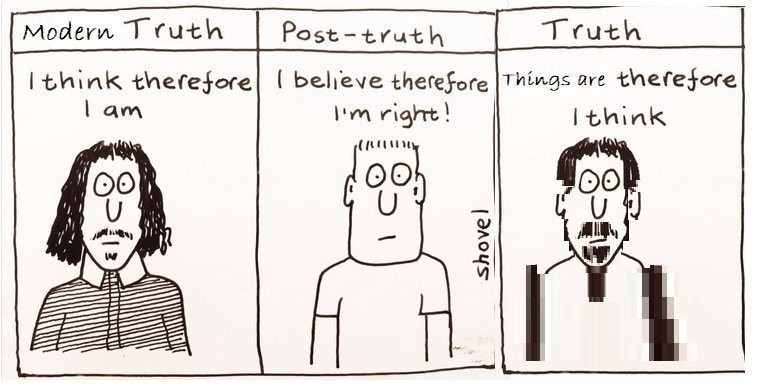Why Palestinian Jesus Pissed Me Off
We know why some Palestinians and their supporters are uncomfortable with Jesus Christ's actual beginnings.
Please consider supporting our mission to help everyone better understand and become smarter about the Jewish world. A gift of any amount helps keep our platform free and zero-advertising for all.
You can also listen to the podcast version of this essay on Apple Podcasts, Google Podcasts, or Spotify.
The first thing I saw was a tweet that on Christmas Eve that said: “Tonight, 2.4 billion Christians in the world will celebrate the birthday of the Palestinian prophet, Jesus. They believe this Palestinian was the son of God.”1
Then came a graphic of Jesus Christ hanging from a cross, wrapped in a Palestinian flag, with Gaza destruction in the background.
Then, “Jesus was a Palestinian refugee.”
Then, a video encouraging viewers to “remember that Christmas is cancelled in His birthplace Bethlehem, occupied by the same Israeli army committing genocide in Gaza. Remember this Christmas, being Christian is to stand with the oppressed in Palestine, not Israel.”2
Then U.S. politician and wannabe influencer, Alexandria Ocasio-Cortez from New York, published a social media post that tried to liken Jesus to the Palestinian people, writing:
“In the story of Christmas, Christ was born in modern-day Palestine under the threat of a government engaged in a massacre of innocents. He was part of a targeted population being indiscriminately killed to protect an unjust leader’s power.”
Okay, enough already.
I can accept different interpretations about what Israelis call the 1948 War of Independence, and Palestinians: “the Nakba” (Arabic for catastrophe). I can accept different narratives about Israel’s involvement in Gaza and the West Bank. I can even bring myself to accept the Hamas-run Gaza Health Ministry’s claim that 21,000 Gazans have died since Israel’s response to Hamas’ massacre on October 7th.
But to vehemently lie about something that is so obviously rooted in common knowledge — that Jesus was a Jew born in Judea — means we, Israelis, have virtually no common ground with the Palestinians whatsoever.
It means that the Israeli-Palestinian conflict is not territorial, nationalistic, or even religious — all of which are more or less solvable. It means this is fundamentally a factual dispute, rooted in human nature, where we can’t even agree on the most basic of facts.
It means that the Palestinians are not playing a sociopolitical game, but a power game — crystalized by “the war of information” — featuring the latest deceptions like deep fakes, artificial intelligence, and social media bots. Pro-Palestinian messaging thus gains more traction and popularity among internet audiences, not only thanks to the power of algorithms, but also because it is tailored by language, widened by platform, and conflated with identity politics.
Social media is flooded with heartbreaking scenes of Palestinian death and destruction, captured and shared by charismatic citizen journalists who have gained massive audiences with their eyewitness accounts of the war. Videos and images from the ground have been amplified by Hamas sympathizers and state-affiliated Chinese, Russian, and Iranian accounts.3
Analysts say that the proliferation of smartphones inside Gaza means that Israel’s military operation has generated more real-time exposure than any contemporary war, including the ongoing one in Ukraine.4 These devices are, for the Israel-Hamas war, what television cameras were in Vietnam: a new medium through which the world is given a proverbial front seat.
Accounts tied to China, Iran, and Russia have sought to capitalize on the conflict to spread anti-Western propaganda. For example, Iranian state-linked accounts have glorified Hamas’ attack as an act of resistance against a “neo-colonial” power, and amplified narratives accusing the U.S. of being responsible for Palestinian suffering, according to the Institute for Strategic Dialogue.
The think tank also said that Russian and Chinese government accounts have promoted similar content, accusing Western countries of ignoring alleged Israeli war crimes. Compounding these problems has been the speed with which Hamas, Palestinian Islamic Jihad, and their supporters spread misinformation.
Among social media channels, TikTok in particular has been dominated by pro-Palestinian content. For every pro-Israel post on TikTok, there have been 36 pro-Palestinian posts, according to an analysis of hashtags by statistician Anthony Goldbloom.
In the past, most reasonable people could agree on basic facts and the problems at hand, no matter if we disagreed on solutions to them. We wouldn’t have an issue recognizing that, for instance, Bethlehem is the birthplace of Jesus, and it was 80-percent Christian under Israeli rule until 1995, when the Palestinian Authority took control of it. Indeed, we know that, today, less than 10 percent of its population is Christian, meaning that under Palestinian rule, the birthplace of Jesus predominantly underwent Islamization.
Yet now, in the age of post-truth and alternative facts, the boundary between truths and lies is erased, facts and related narratives are strategically manufactured, emotions are more important than knowledge, and actors in sociopolitical arenas have little regard for proof or evidence.
As historian Timothy Snyder said, “Post-truth is pre-fascism. Without agreement about some basic facts, citizens cannot form the civil society that would allow them to defend themselves. If we lose the institutions that produce facts that are pertinent to us, then we tend to wallow in attractive abstractions and fictions. Post-truth wears away the rule of law and invites a regime of myth.”
So many of us are now unable to distinguish between what feels good and what is patently true, sliding back into superstition, stigma, and darkness — without even realizing it. The great Spanish surrealist artist, Salvador Dalí, called this “systematized confusion” brought on by paranoia and active process of thought, both of which assist in completely discrediting reality.
When considering the nature of reality, we are faced with two approaches: the realist approach, in which there is a single, objective, overall reality believed to exist irrespective of the perceptions of any given individual; and the idealistic approach, in which it is considered that an individual can verify nothing except their own experience of the world, and can never directly know the truth of the world independent of that.
In societies where theocentric religions are dominant, like Palestinian society, the religious understanding of existence is the consensus reality, while the religious worldview would remain the non-consensus (or alternative) reality in a mainly secular society, where the consensus reality is grounded in science alone, such as in Western societies.
This is why different individuals and communities have fundamentally different world views, with fundamentally different comprehensions of the world around them, and of the constructs within which they live. Thus, a society that is, for example, completely secular and one which believes every eventuality to be subject to metaphysical influence will have very different consensus realities, and many of their beliefs on broad issues such as science, slavery, and human sacrifice may differ in direct consequence because of the differences in the perceived nature of the world they live in.
The problem is not that Palestinian society thinks or feels differently about reality than, say, Israeli society. The problem is that Palestinian society, or parts of it, can so easily export their lies-infested worldviews to non-Palestinians across the globe via social media — and get these non-Palestinians to not just believe, but to also disseminate them to their social networks, especially across liberal democracies and their institutions.
Disinformation weakens freedom of speech and democracies, since it disrupts people’s trust in institutions and the media. Given that democracies can no longer be thought of as political regimes which are legitimized by the mere functioning of institutional formalities, post-truth in the internet era serves as a space for ideological conflicts and geopolitical power struggles that are reshaping the world order (or at least attempting to).
The collective trauma of 9/11, the setbacks suffered by the neoliberal consensus in the aftermath of the 2008 financial crisis, the debacle of the 2003 Iraq War, and the consequent rise of Islamic fundamentalism in the Middle East and elsewhere, as well as the more recent authoritarian backlash against the Arab Spring, have challenged at its core the supremacy of the Western ideological project.
A trust decline after these events produced hostility to the globalized economy shifting from the fringes to the center of political discourse. It became commonplace to question an economic system initially presented as a reliable source of rising prosperity that now seemed horribly vulnerable to the whims of its operating elite, which ship jobs overseas and invest in technologies that disrupt long-time industries.
Disenfranchised demographics began to resist the “regime of truth” enforced by centrist, technocratic politicians, and to reject the rhetoric of globalization and neoliberal democracy, which are deemed as culprits of rising inequalities. Right-wing nationalist parties in Europe tapped into this discontent, making significant electoral gains.
Both at the domestic and global levels, the stability of the neoliberal democratic media and political establishments has been fundamentally challenged by competing and dissenting voices — from the so-called alt-right in the United States, to nationalist populism in Europe — which have been amplified and made more relevant by online media ecosystems.
The globalist liberal “ideoscape” (ideological space) is on a collision course against a plurality of smaller, yet interconnected, ethnonationalist, and conservative ideoscapes empowered by social media. Such disjuncture could be seen as a conceptual precursor of the emerging post-truth global age, and it could thus be argued that from a geopolitical perspective, the advent of the post-truth era signals the crisis of neoliberal and Western globalization.
Globalization has its origins in the Enlightenment from the 18th century, which was an attempt to build “morality” disconnected from faith and religion. Before then, the West was essentially Christendom.
“But Christendom died,” wrote Paul Kingsnorth, a novelist and essayist. “If you live in the West now, you are living among its ruins. Many of them are still beautiful — intact cathedrals, Bach concertos — but they are ruins nonetheless. And when an old culture built around a sacred order dies, there will be lasting upheaval at every level of society, from the level of politics to the level of the soul.”5
The vacuum created by Christendom’s collapse was filled by the poisonous gas of consumer capitalism, which led to the internet, which led to the rise and proliferation of our post-truth world, which leads to such absurd claims like “Jesus was Palestinian.”
I’m not Christian, but I am a subscriber to truth — and thus deeply disturbed by certain Palestinians and certain of their supporters trying to rewrite Jesus’ story as if it’s some trivial, irrelevant attempt at mere fun and games during what could prove to be a game-changing Israel-Hamas war, both for each party, their allies, as well as for the region.
Yet we know why these Palestinians and their supporters are uncomfortable with Jesus’ actual beginnings: Acknowledging that he was a Jew means acknowledging Jews lived in Judea thousands of years ago, which means acknowledging Jewish indignity way before Arabs from Arabia migrated to and Arabicized the Levant.
Ultimately, this means acknowledging Jewish rights in this land, a big turn-off for Jew haters, anti-Zionists, and terrorist sympathizers.
Hence, Jesus was Palestinian and history doesn’t matter.
Dr. Seshadri Kumar on X
Richard Medhurst on X
“Inside the Israel-Hamas Information War.” TIME.
“Gaza and the Future of Information Warfare.” Foreign Affairs.
“The West has lost its virtue.” UnHerd.







AOC and others, repeat after me: Jesus was a Jew. I think it to be blasphemous to say otherwise. Thanks Joshua for very provocative writing. Thinking of the discussion on realism vs. idealism, I’d choose what we’d like to see in the world rather than what many are currently making it and distorting it to be. I believe in Israel’s right to exist; Israelis are fighting what seems like a growing list of enemies, and I pray to the God of both Christians and Jews that Americans will rise up and help fight this evil. The idealist in me believes.
In his lifetime on earth ‘Jesus’ never has been called Jesus. His mothers name wasn’t Mary and his nephew Jochanan never heard anybody calling him John (etcetera)
‘Changing’, ignoring and denying the facts about who he is,has a long history already.
Remarkable that the offspring of the ancient-violent occupiers, the Romans, depicted him as a ‘european’-type as now, similarly that false image evolves in a palestinian-version.
Still facts don’t change. Learn from his life and teachings; it’s all based on the Torah and on the Jewish Prophets. Find out about his genealogy to see his Jewish forefathers with Israels king David and all the way back to Seth the son of Adam.
Thank G’d for the truth